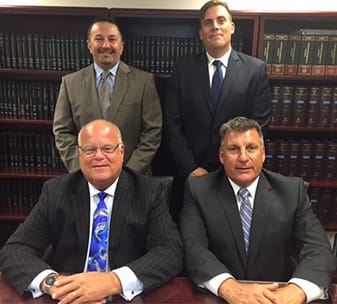NY Court of Appeals to decide on rent stabilized apartments in bankruptcy
The New York State Court of Appeals will soon decide whether a tenant’s rent-stabilized apartment is an asset that can be sold in bankruptcy. Tenants in rent-stabilized apartments have traditionally been wary of declaring bankruptcy. Currently whether a rent-stabilized apartment is considered an asset that can be sold to creditors depends on the circumstances of the bankruptcy filer and the chapter under which the bankruptcy is filed.
Rent stabilization law in New York caps rent increases, limits eviction rights, and allows heirs of the tenant to inherit the lease. The question before the New York Court of Appeals is whether these rights amount to an asset that can be distributed by the bankruptcy trustee in a Chapter 7 bankruptcy.
In Chapter 7, assets are sold, with a few exemptions, to pay off creditors. Remaining balances are discharged (erased) so that the filer can get a fresh start. In a Chapter 7 case, the debtor’s assets are given to a trustee to distribute. The trustee then has the ability to organize assets and sell them off according to the bankruptcy plan. Not every trustee will sell the rights to a rent-stabilized apartment, but currently filing a Chapter 7 does put such an apartment at risk.
A Chapter 13 bankruptcy allows the filer the ability to keep his or her home, including a rent-stabilized apartment. Chapter 13 reorganizes debt into manageable payments that last from three to five years. At the end of the payment period, some of the remaining debt is discharged. The benefit of Chapter 13 bankruptcy is that it allows the filer to keep assets, such as a home and car, while he or she pays down debt. However, a Chapter 13 bankruptcy plan does require the filer have a steady stream of income in order to continue making payments.
New York tenant garnering attention
The case coming before the state’s highest court came to the public’s eye in 2013, when The New York Times first ran an article on a 79 year-old tenant who filed for Chapter 7 protection in 2011. At the time neither she nor her attorney realized they were putting her apartment at risk. Later she declared the lease to her apartment as exempt from the bankruptcy estate. The tenant, Mary Santiago, is claiming that her apartment is a protected local public assistance benefit, protected from creditors in bankruptcy just as other public assistance like unemployment benefits and food stamps.
However, the bankruptcy court struck down her claim, and the appeals court affirmed. The owner of the apartment ended up purchasing the apartment. The owner is allowing her to live in the apartment but her son would not inherit the lease.
The state’s highest court will now weigh in on the matter in a case that could affect thousands of New Yorkers contemplating bankruptcy.
Contemplating bankruptcy?
Whatever the outcome of this case, it does show the need for people considering bankruptcy to consult with an experienced bankruptcy attorney to discuss his or her situation. A practiced bankruptcy attorney can discuss whether bankruptcy is the right option, which chapter makes the most sense, and point out potential benefits and disadvantages to every option.

